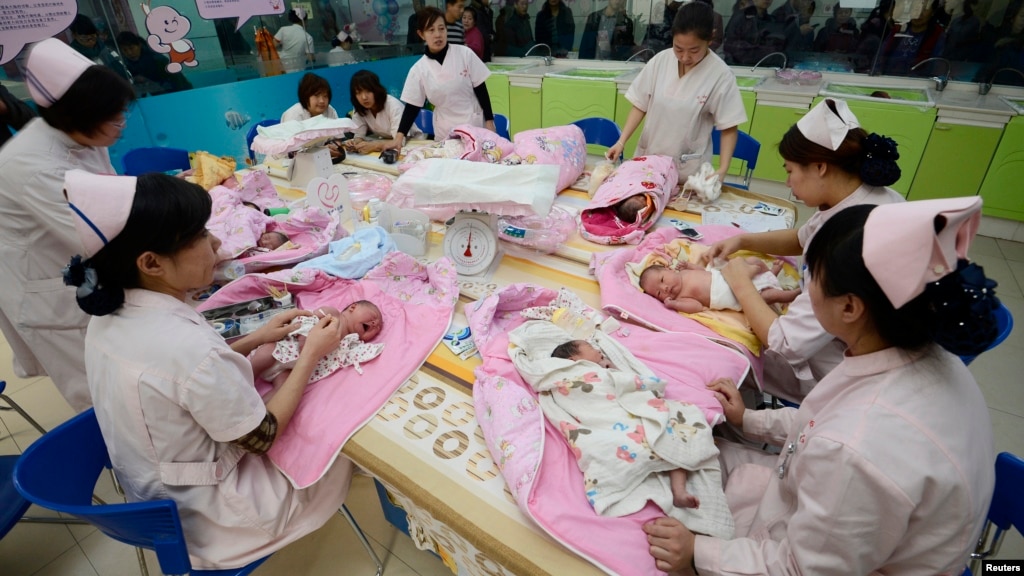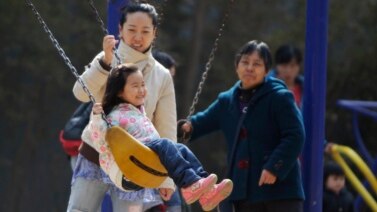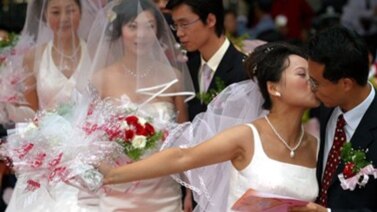
China’s decision to end its one-child policy is likely to affect the country’s economy.
Official Chinese media reported last month that all couples will be permitted to have two children.
The change in policy is expected to create new investments and increased demand for goods and services. The move comes as China’s economy is slowing. However, the change also may increase demand for higher pay and increase labor costs.
Speaking at a press conference Tuesday, Chinese officials predicted that the new policy would raise economic growth by about half of one percent. They said it would provide China with about 30 million laborers by 2050.
He Weiwen is with the Chongyang Institute for Financial Studies at Renmin University in Beijing. He says that more children will mean “more maternity homes, hospitals, kindergartens and schools. It will certainly result in massive investment in these areas.”
“The two-child policy will also lead to more spending on the second child, and thus contribute to economic growth.” He added, “The families having the second child will reduce their savings to meet the new requirement.”
The policy limiting families to one child began more than 30 years ago. When the new policy goes into effect, 91-million couples will have official permission for a second child. The government expects that at least 60 percent of parents having two children will come from rural areas.
Limited health care and educational centers in rural areas and small cities have long been a problem in China. The government will have to make new investments in these areas to provide quality centers for families with two children.
The Conference Board, a U.S.-based research group, says there are both good and bad effects that might result from the two-child policy.
The group says, “An increase in the number of children could have a positive impact on the consumption of products and services catering towards child rearing.” It adds, “this could lead to growth and employment demand in those industries."
But the Conference Board also warned of the effects of rising labor costs, and greater pressure on aging grandparents. These men and women are often forced to take care of the young children of working mothers and fathers.
The main purpose of permitting two children in each family is to deal with the aging of China’s population and shrinking workforce.
I’m Mario Ritter.
Saibal Dasgupta reported this story for VOANews.com. Mario Ritter adapted it for Learning English. George Grow was the editor.
What are your thoughts about China’s new, two-child policy? Let us know in the Comments section and on our Facebook page.
Words in This Story
couples – n. two people who are married or have a relationship
maternity – adj. relating to the time when a woman gives birth to a baby
kindergarten – n. a class for young children
contribute – v. to give or provide something
catering – adj. providing services, such as food or other needed services, for a group
child-rearing – n. related to raising a child

